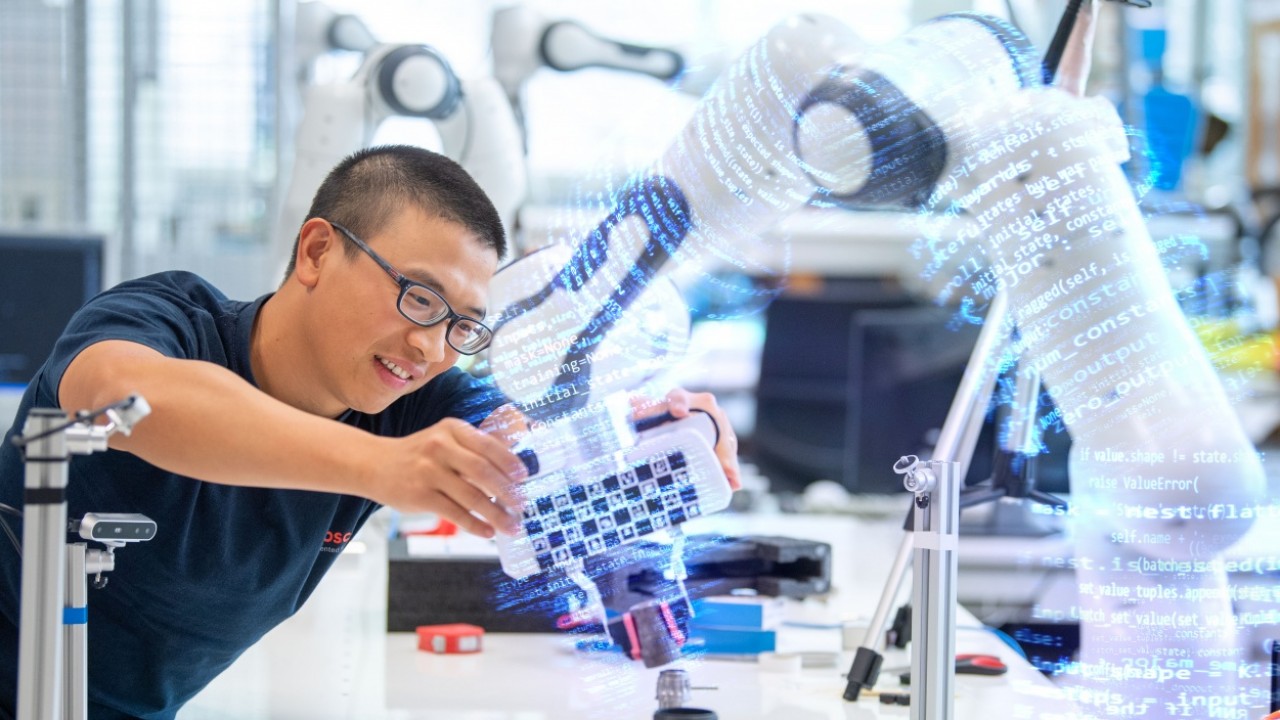Italian manufacturing needs more flexibility
The ability to manage unexpected events and fluctuations in demand is critical, digital platforms help companies to gest exaclty that

Italy is one of the leading countries in manufacturing. That's why talking about Industry 4.0 is not just debating on different forms of industrial innovation. A good part of Italy's competitiveness will come from a real digitalization of manufacturing. From this perspective, 2020 was a watershed experience: manufacturing companies realized that they need to be more "flexible" - in the broadest sense - and that digital can give them a big hand. We've already seen what a good degree of digitalization can do: manufacturing companies who were more advanced in the transposition of digital technology suffered, in 2020, less than those who were behind.
Manufacturing priorities are now clear: improving process efficiency, enhancing demand planning and supply chain management, adopting more modern shop floor platforms (MES, for example) and other enterprise application more or less connected to production (from ERP onwards). Today, the ability to "absorb" unexpected events - not necessarily global emergencies, we hope - and fluctuations in demand is perceived as critical. Digital platforms help in this respect, giving companies the ability to partially predict the future and react quickly to any change.
Nothing new, just that pandemic accelerated any form of Digital Transformation. However, manufacturing faces one more hurdle: IT complexity. Manufacturing companies use more applications than comparable commercial organizations - three times more, on average. These platforms are very specific and, mostly, not originally designed to share operational data. Still, these are the platforms that concretely carry out production and cannot be discarded or “modernized” easily. Italian manufacturing now needs more flexibility. And this need can be a positive force of change. An evolution factor that many smaller companies lacked in the past, especially those for whom investing in new technologies is always hard. But it's not just a matter of technology, even if there are still vast margins of improvement in manufacturing - Forrester estimates that, globally, 63% of manufacturing companies aren't able to make accurate forecasts in real time. What the sector needs is also a different vision of manufacturing processes.
Italian manufacturing now needs more flexibility. And this need can be a positive force of change. An evolution factor that many smaller companies lacked in the past, especially those for whom investing in new technologies is always hard. But it's not just a matter of technology, even if there are still vast margins of improvement in manufacturing - Forrester estimates that, globally, 63% of manufacturing companies aren't able to make accurate forecasts in real time. What the sector needs is also a different vision of manufacturing processes.
Traditionally, production processes are seen as a sequence of discrete steps that can be optimized one by one, aiming at a greater efficiency. But this model is not working anymore. The production chain now appears like an ecosystem of ongoing interactions that can - or should - vary and adapt themselves based on operative conditions or production goals.
A mind change which is not trivial at all and force companies to modify deeply their historically siloed OT-IT systems, in order to be able to gather operational data. Inside the company and, more and more, from supply chain partners too.
Systems integration and data transparency can be hard to obtain from traditional on-premise systems, especially if you have not yet invested in Digital Transformation projects. So many manufacturing companies see the cloud as an easier solution for an "open manufacturing" scenario. Where production and supply chain data can be shared, or federated, in a complete ecosystem of manufacturers, suppliers, customers. Today this is more a vision than a strategy, but the technological building blocks companies need - additive manufacturing, AR/VR, predictive maintenance, AI, simulation tools and so on - are already available.
Related news
Last News
RSA at Cybertech Europe 2024
Alaa Abdul Nabi, Vice President, Sales International at RSA presents the innovations the vendor brings to Cybertech as part of a passwordless vision for…
Italian Security Awards 2024: G11 Media honours the best of Italian cybersecurity
G11 Media's SecurityOpenLab magazine rewards excellence in cybersecurity: the best vendors based on user votes
How Austria is making its AI ecosystem grow
Always keeping an European perspective, Austria has developed a thriving AI ecosystem that now can attract talents and companies from other countries
Sparkle and Telsy test Quantum Key Distribution in practice
Successfully completing a Proof of Concept implementation in Athens, the two Italian companies prove that QKD can be easily implemented also in pre-existing…
Most read
Planview Enters 2026 with New Leadership and Continued AI Innovation
Planview®, the leading platform for Strategic Portfolio Management (SPM) and Digital Product Development (DPD), today announced strong 2025 momentum,…
Technology Innovation Institute and World Economic Forum Announce ‘Abu…
The Technology Innovation Institute (TII), the applied research arm of Abu Dhabi’s Advanced Technology Research Council (ATRC), and the World Economic…
Pricefx Enters 2026 With Record Momentum and Breakthrough AI Adoption
#AI--Pricefx, the global leader in AI-powered, cloud-native pricing software, today announced strong 2025 results, marking a year of sustained growth,…
Yelp Announces its 2026 Top 100 Places to Eat in the United States
Yelp, the company that connects people with great local businesses, today announced its 13th annual list of the Top 100 Places to Eat in the U.S., highlighting…






